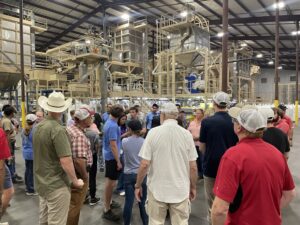 After leaving MANA Nutrition, tour attendees hopped on I-75 and headed south to Tifton Quality Peanuts in Tifton, Georgia. Tifton Quality Peanuts began its shelling operation in 2005 and has been running strong ever since. The company is a grower-owned shelling facility. One of the highlights of the tour was the very large domes where the peanuts are stored. Each of the three domes can hold up to approximately 13,000 tons of peanuts. Between the domes and additional warehouses, the facility can store up to 70,000 tons on site.
After leaving MANA Nutrition, tour attendees hopped on I-75 and headed south to Tifton Quality Peanuts in Tifton, Georgia. Tifton Quality Peanuts began its shelling operation in 2005 and has been running strong ever since. The company is a grower-owned shelling facility. One of the highlights of the tour was the very large domes where the peanuts are stored. Each of the three domes can hold up to approximately 13,000 tons of peanuts. Between the domes and additional warehouses, the facility can store up to 70,000 tons on site.
Attendees walked through the entire shelling process. It begins with peanuts being moved out of storage and into the plant, where they pass through a series of machines. First, the peanuts go through cleaning equipment to remove dirt, rocks, and other foreign materials. From there, they enter a rotating machine that breaks open the hulls, allowing the kernels to separate. The peanuts then move on to a color sorter, which detects defects in each kernel. Defective peanuts are identified by specific colors and separated from the high-quality kernels. Next, the kernels are sized before being packed into large totes and placed in cold storage.
So where do the peanuts go once they are shelled? Companies like Mars Snackfoods, Hershey, and Tom’s Snacks purchase them to use in some of your favorite treats!

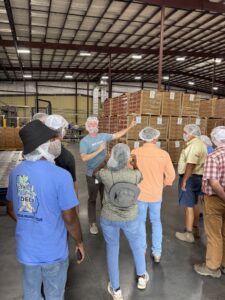 Tour attendees visiting MANA Nutrition in Fitzgerald, Georgia, received an inside look into Ready-to-Use Therapeutic Food (RUTF). RUTF is a dense, nutrient-rich food used to treat severe malnutrition. The purpose of RUTF is to help children gain weight, improve strength, and restore overall health. It is made with milk, multivitamins, and peanut butter. The product is especially effective because it is shelf-stable and requires no preparation.
Tour attendees visiting MANA Nutrition in Fitzgerald, Georgia, received an inside look into Ready-to-Use Therapeutic Food (RUTF). RUTF is a dense, nutrient-rich food used to treat severe malnutrition. The purpose of RUTF is to help children gain weight, improve strength, and restore overall health. It is made with milk, multivitamins, and peanut butter. The product is especially effective because it is shelf-stable and requires no preparation. Attendees had the opportunity to visit a buying point in the heart of Coffee County, Georgia. Douglas Peanut and Grain Company serves as the first point of delivery for freshly harvested peanuts in the county. Once peanuts are harvested from the field, farmers must first tag their load right there in the field before transporting it—either in wagons or semi-trailers—to the buying point.
Attendees had the opportunity to visit a buying point in the heart of Coffee County, Georgia. Douglas Peanut and Grain Company serves as the first point of delivery for freshly harvested peanuts in the county. Once peanuts are harvested from the field, farmers must first tag their load right there in the field before transporting it—either in wagons or semi-trailers—to the buying point.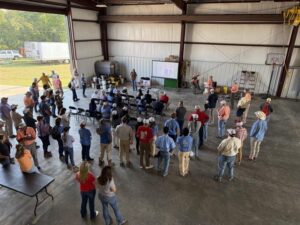
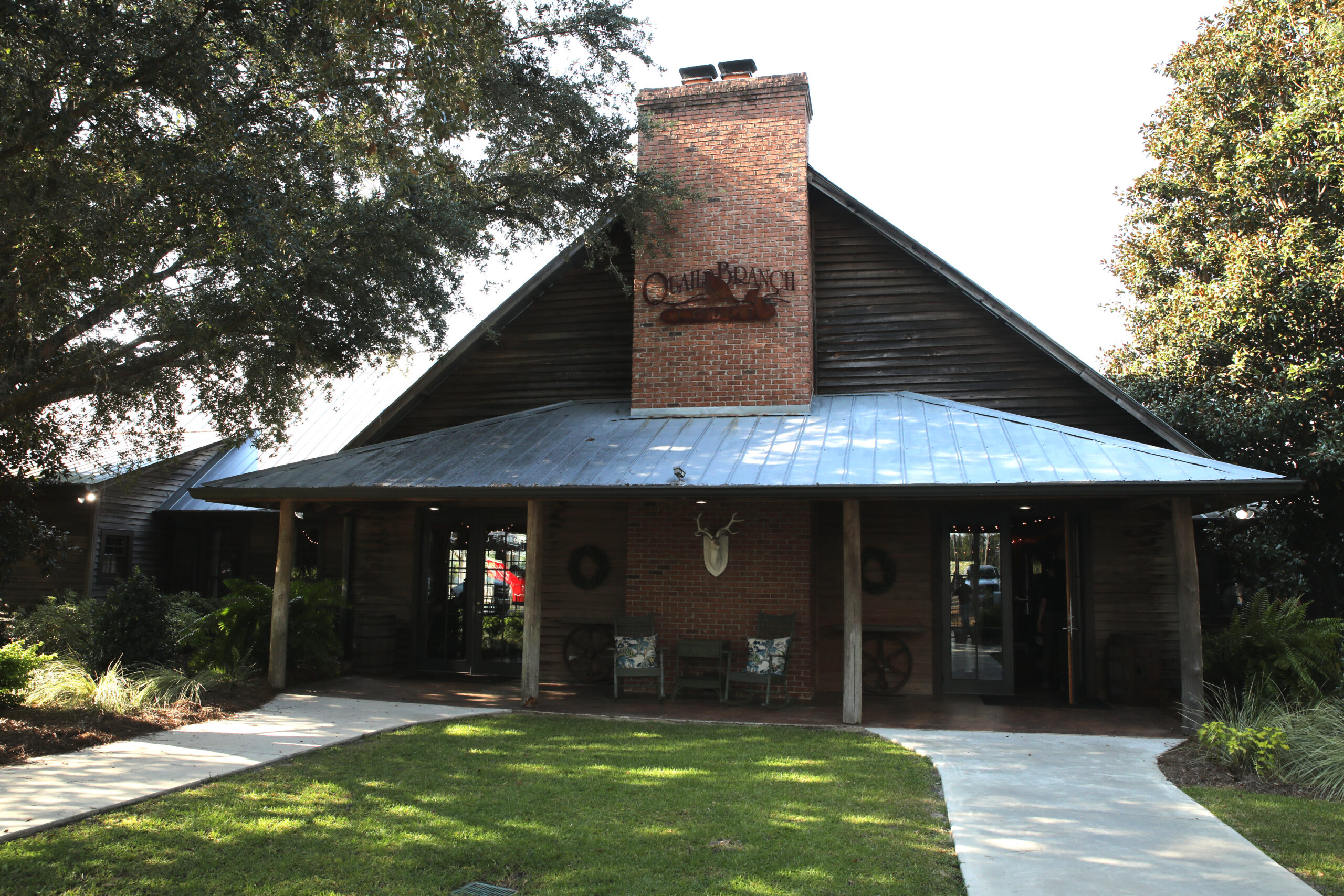 The 2025 Georgia Peanut Tour concluded with dinner hosted at the
The 2025 Georgia Peanut Tour concluded with dinner hosted at the 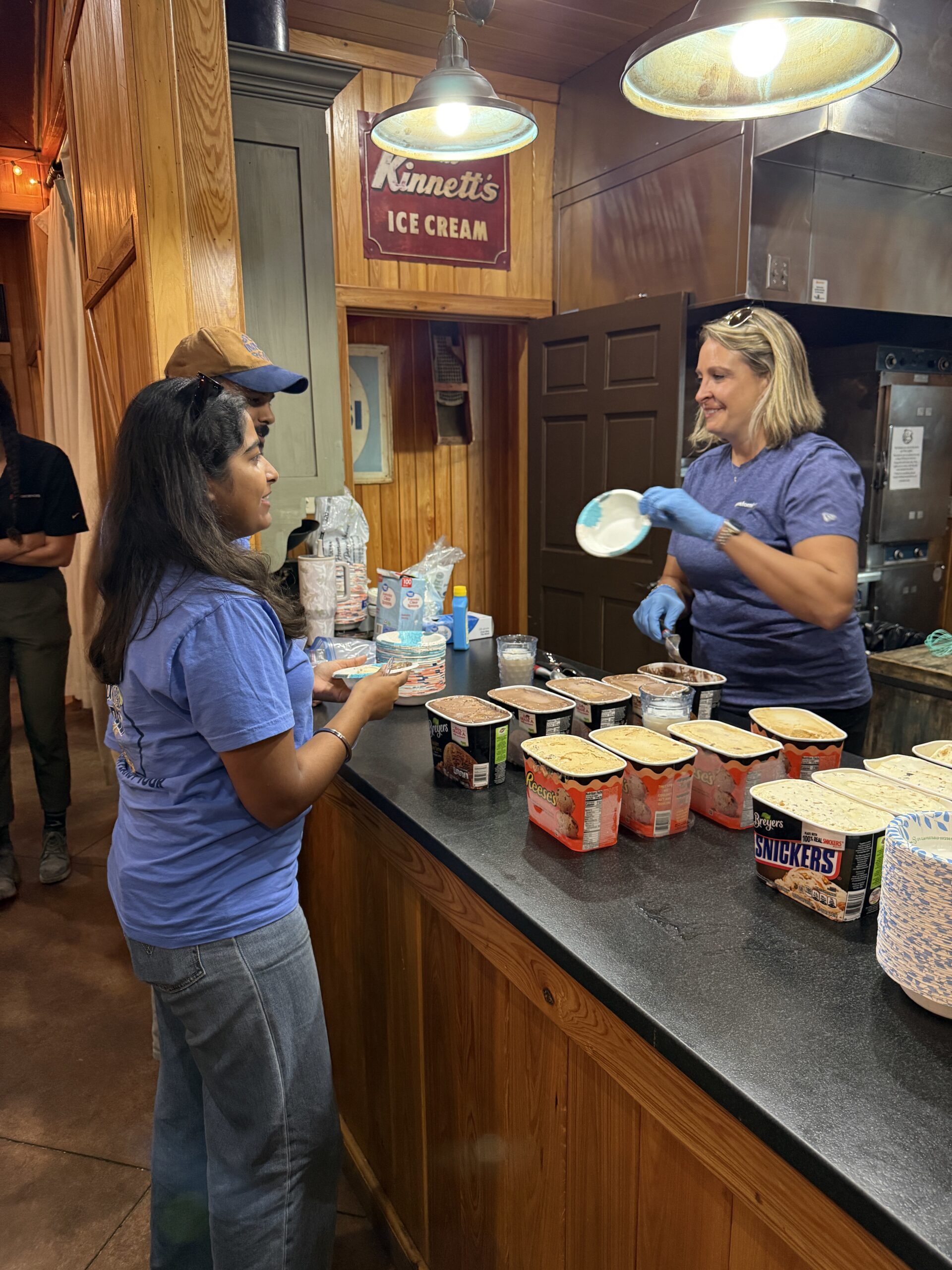 A Georgia Peanut Tour tradition, the Wednesday night meal featured the famous low country boil and peanut-inspired ice cream sponsored by
A Georgia Peanut Tour tradition, the Wednesday night meal featured the famous low country boil and peanut-inspired ice cream sponsored by 
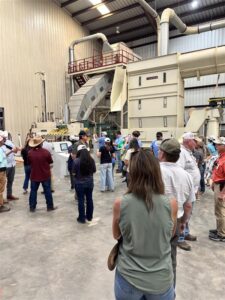 Established in 1983,
Established in 1983, 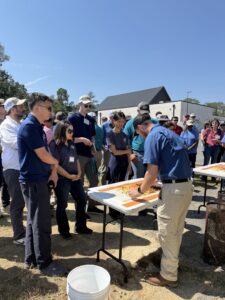 Georgia Peanut Tour attendees got to dig even deeper into a day in the life of a farmer nearing harvest. One of the steps a farmer has to take to know if his peanuts are ready to harvest is assessing the maturity of their peanuts. Extension agents Cale Cloud, Tucker Price and Jacob Kalina taught tour attendees how a farmer may go about determining the maturity of their peanuts.
Georgia Peanut Tour attendees got to dig even deeper into a day in the life of a farmer nearing harvest. One of the steps a farmer has to take to know if his peanuts are ready to harvest is assessing the maturity of their peanuts. Extension agents Cale Cloud, Tucker Price and Jacob Kalina taught tour attendees how a farmer may go about determining the maturity of their peanuts. Colombo North America
Colombo North America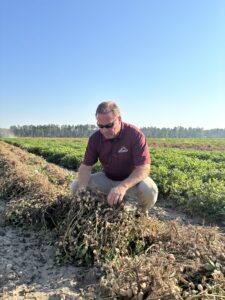 The first stop of the 2025 Georgia Peanut Tour highlighted the beginning of the peanut harvesting process—digging. Digging takes place approximately 120 to 150 days after planting. When conditions are just right, farmers take a digger up and down the rows. The digger gently pulls up the plants, shakes off the excess soil, and lays the plants back down with the peanuts facing the sun. This allows the peanuts to dry for a few days before the combine comes back through.
The first stop of the 2025 Georgia Peanut Tour highlighted the beginning of the peanut harvesting process—digging. Digging takes place approximately 120 to 150 days after planting. When conditions are just right, farmers take a digger up and down the rows. The digger gently pulls up the plants, shakes off the excess soil, and lays the plants back down with the peanuts facing the sun. This allows the peanuts to dry for a few days before the combine comes back through.